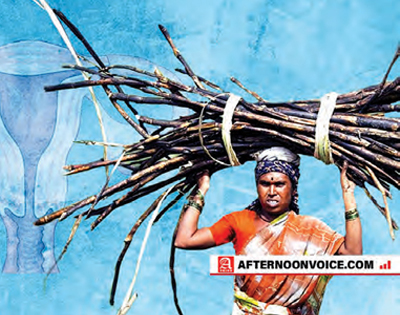
CORPORATE CITIZEN CLAPS FOR THE BRAVE-HEART BENGALURU GYNAECOLOGIST, THE CREW OF INDIGO FLIGHT 6E 122 AND THE HELPFUL PLASTIC SURGEON WHO GAVE A NEW MEANING TO MID-AIR EMERGENCY PROTOCOLS

Little did Dr Sailaja Vallabhaneni, Consultant Foetal Medicine, Cloudnine Group of Hospitals, anticipate the ‘Florence Nightingale’ role she would have to play on the evening of October 7, 2020, as she exercised her medical oath mid-air to salvage the lives of a newborn and its mother. Her presence of mind, decision-making and immense support from the cabin crew helped Monica, the expectant mother in her 30s to give birth mid-air. Within 15 minutes of the take-off, crew members had called out for a doctor when Riyadh-based plastic surgeon, Dr Nagaraj volunteered. Much to his relief, Dr Sailaja too introduced herself and the mid-air delivery slowly set into motion. The 1.5 months-pregnant Monica expressed discomfort and was experiencing pain which lead the gynaecologist to think that she might be undergoing abortion symptoms due to the high inflight altitude and her gestational condition. However, the mother-to-be informed that she was suffering from gastritis and desperately walked towards the aeroplane’s restroom. It was then that the trained eyes of Dr Shailaja noticed blood-stained liquid on the floor and realised that the young woman’s foetal ‘water bag’ had broken. “Luckily due to the ongoing pandemic, I was wearing gloves, a mask and a face-shield. When I saw the condition of the woman in the bathroom, I knew she had gone into labour. Fortunately, the baby cried immediately after birth”, said Dr Shailaja. The mid-air birth of the premature 32-34 weeks baby weighing 1.8 to 2 kgs was also possible due to the assistance of the cabin crew who immediately swung into action, reflecting on their rigorous training and the sufficiently equipped ‘on-air’ medical kit. With due support from the pilot, the stoic disposition of the new mother and the positive morale of co-passengers, Dr Shailaja suggested a direct landing into Bengaluru’s Kempegowda Airport. While the ground staff warmly welcomed the newborn, IndiGo is said to have gifted the child a lifetime of free travel.
CORPORATE CITIZEN SLAPS THE PERSISTING OPPRESSION ENDURED BY WOMEN SUGARCANE CUTTERS IN MAHARASHTRA

They have to work an inhuman daily 13 to 18 hours, without any weekly rest day and continue working during illness, menstruation, pregnancy or delivery, as per a new study conducted by the Mahila Kisan Adhikar Manch (MAKAAM) involving 1,042 women sugarcane cutters from eight districts Beed, Hingoli, Latur, Jalna, Solapur, Nanded, Osmanabad and Parbhani. Cane cutters migrate to western Maharashtra and a few other states during the annual harvesting season between October to March but their journey for survival is rife with inhuman atrocities, especially, women as they juggle their laborious work under mentally and physically trying situations. Debate continues on the uproar in 2019 when women sugarcane cutters were forced to undergo hysterectomies at a very young age at the behest of the contractors who employ them. Their plight now takes centre stage in director Ananth Mahadevan’s film titled - “Bittersweet” - nominated for the upcoming Busan International Film Festival. Mahadevan said that the condition of female sugarcane cutters in the Beed district of Maharashtra was an eye-opener. Despite India being the 2nd largest sugarcane exporter after Brazil, the ‘bitter-sweet’ truth is that there is a link between sugarcane barons, field contractors, politicians, and local gynaecologists that advocates that being “womb-less” could be beneficial as there would be no menstruation problem, no cancer of the uterus, and women could work all days without salary cuts. Ironically, the frightened women never complained, which became a common practice. The only silver lining shown by the Padmabhushan Krantiveer Dr Nagnathanna Nayakawadi Kisar Ahir Sahakari Sakhar Karkhana has won awards for its highest recovery of sugar which also provides for the workers’ well-being under the “Hutatma Pattern”. A committee report headed by Dr Neelam Gorhe, Deputy Chairperson of Maharashtra Legislative Council, was accepted by the government in August 2019, but its recommendations are yet to be fully implemented. The migratory nature of the cane cutters too is a catch 22 situation in getting them under social security measures. As the legacy of oppression continues, can social and government might wake up to a more fair and human resolve?